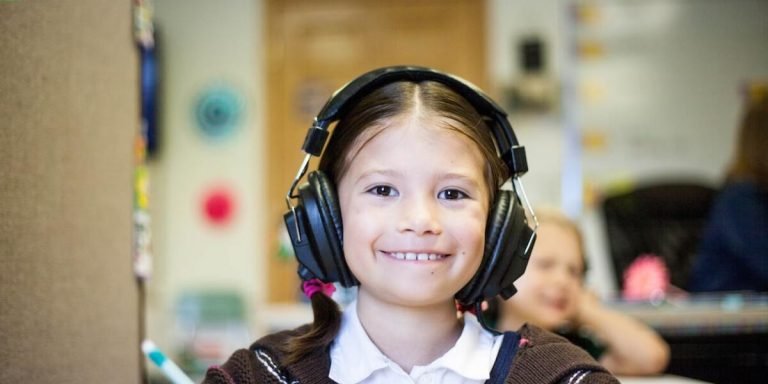Elementary Schools: Cultivating a Solid Foundation for Lifelong Learning
Elementary school education is a crucial stage in every child’s learning journey. These years, often spent within the nurturing environments of elementary schools, form a significant part of children’s academic foundation and have an everlasting impact on their intellectual development.
Inextricably linked to lifelong learning, the right kind of cultivation at this early educational phase can set them up for success not only academically but also personally and socially. It determines how they perceive education as well – with curiosity or dread? As opportunities open wide in our technologically advancing world today, it becomes imperative that we understand and appreciate these critical foundational years better.
Did you know?
A study from Stanford University found that children who had a solid academic foundation in an elementary school outperformed their peers in high school, validating the significance of formative education years.
Understanding the Core Curriculum of Elementary Schools
The core curriculum of elementary schools serves as the foundation for children’s future learning. This vital part of education encapsulates age-specific, relevant knowledge designed to foster intellectual growth and development in young minds. In 2023, educators are increasingly recognizing the importance of a well-rounded curriculum that strikes an optimal balance between cognitive subjects like Mathematics and English Language Arts with more comprehensive life skills such as problem-solving, critical thinking, collaboration and creativity.
Understanding what comprises this core curriculum can empower parents to support their child’s educational journey effectively. It typically includes key areas like literacy (reading & writing), mathematics, sciences, social studies or history — each aimed at equipping students with necessary foundational understanding within these domains. But it doesn’t stop there – modern curricula also emphasize art programs and physical education fostering not only academic but holistic growth.
As we proceed further into this decade marked by rapid advancements in technology influencing pedagogy styles significantly; digital prowess is becoming integral too! Schools now include computer science lessons stimulating algorithmic thought processes while enhancing familiarity with emerging technologies right from early years. Thus acknowledging parental concerns about how accurately school curriculum prepares their children for both present day challenges and those witnessed in society at large.
Breaking Down Subject Areas: Math, Language Arts, Science, and Social Studies
In today’s fast-paced educational landscape, understanding the core curriculum of elementary schools is crucial for parents and educators alike. Let’s delve into the primary subject areas: Math, Language Arts, Science, and Social Studies.
Mathematics in elementary schools acts as a cornerstone to developing logical thinking skills. In 2023, we see an exciting blend of traditional numerical methods meshing with modern problem-solving approaches. Emphasis on basic operations like addition and subtraction shifts towards fostering mathematical reasoning abilities.
Language arts plays a seemingly intangible yet significant role in shaping children’s ability to communicate effectively. It encompasses reading comprehension strategies that nurture critical thinking skills alongside writing techniques that encourage creativity – both integral elements essential for future success.
Next comes science – a fascinating exploration into our world’s natural laws designed to spark curiosity while planting seeds of empirical data interpretation prowess. The focus typically includes life sciences which cover plant growth or human biology; Earth sciences center around weather phenomena or geological wonders; physical sciences become more explicit through simple experiments demonstrating Newtonian principles like gravity or states of matter transitions such as water turning into ice.
Finally but importantly are social studies—a mixture made up from geography insights exposing kids to diverse cultures across continents & eras along with civics lessons aimed at instilling responsible citizenship values aligned under democratic philosophy umbrella during these early formative years itself .
Assessing Developmental Milestones Through Core Learning
Assessing children’s developmental milestones is an integral part of the elementary school curriculum. It not only aids in monitoring a child’s progress, but it also helps identify any areas where additional support may be required.
In today’s technologically advanced era of 2023, educators leverage innovative tools and techniques to evaluate milestones within core learning subjects. These include:
- Math
- English Literature & Composition
- Language Arts
- Science
- Social Studies
Let’s delve into each one.
Math skills at this level begin with basic counting exercises that later evolve into complex problem-solving tasks. Teachers use creative approaches such as online interactive games or math puzzles to assess student competencies while keeping them engaged.
English Literature & Composition development involves nurturing abilities for reading comprehension and effective written communication from a very young age. Progress here is usually assessed through book reports or short essay assignments which provide insight on their understanding capability and linguistic acuity.
Science education introduces students to concepts about life processes, physical world phenomena both near us (like our own body functions)and far away(like space). Educators often make use of interesting hands-on experiments followed by reflective discussions helping gauge children’s curiosity levels along with their scientific knowledge.
Integrating Technology in Elementary School Classrooms
In 2023, the importance of integrating technology in elementary school classrooms is more significant than ever. With rapid advancements and an increasingly digital society, it’s imperative for young learners to be equipped with tech-savvy skills from their formative years itself.
As we delve into this fascinating phase of academia where traditional teaching methods blend seamlessly with modern technology tools, we discover possibilities that redefine learning experiences. Elementary schools are no longer about chalkboards and textbooks alone but have evolved into dynamic environments fostering creativity and interactive learning through smart devices like tablets or personal computers.
Embracing technological integration offers numerous benefits:
- Children engage with education through visual aids, making lessons tangible.
- Personalized e-learning software allows children to learn at their own pace, addressing individual needs.
- Assignments turn into collaborative projects that foster teamwork on online platforms.
By adopting these modern practices early, youngsters build a solid foundation for the digital world. This ensures parents that elementary schools continue to be vital hubs that foster holistic development in academics and essential life skills.
Enhancing Interactive Learning with Educational Software
Educational software is reshaping the learning landscape in elementary schools across the globe, creating unique opportunities for interactive learning. As we step further into 2023, embracing these technological advancements has become more important than ever.
Popular education-based applications such as ABCmouse and Kahoot are being integrated into daily lessons to stimulate children’s minds better and make complex concepts fun-to-learn. The attractive animations and game-like interfaces of these platforms captivate young learners’ attention while reinforcing their understanding of different subjects.
Likewise, online storybooks like Epic! enrich literacy skills among grade-schoolers by offering thousands of electronic books at various reading levels. With built-in quizzes after every book read, kids not only develop a love for literature but also strengthen their comprehension abilities simultaneously.
The teaching community must keep up with these revolutionary changes brought about by educational technology companies . They need continuous professional development programs that train them effectively in embedding technology seamlessly inside lesson designs.Personalizing instruction becomes easy when teachers learn how exactly use adaptive algorithms powered machine learned initiatives created e-learning industry .
Smartboards and Tablets: Tools for Modern Education
Smartboards and tablets have transfigured the mode of imparting knowledge in elementary schools. As we step further into 2023, these digital tools not only facilitate interactive learning but also help educators diversify their teaching strategies for a more comprehensive educational experience.
The use of Smartboards has significantly reshaped classroom dynamics. This tool allows teachers to engage pupils with visual content, making complex concepts easier to grasp. The interactivity promoted by smart boards often results in increased student participation, fostering an environment where students feel empowered to contribute.
They can interact directly with the board or connect their personal devices for real-time collaboration on projects and assignments.
Tablets are yet another vital asset shaping contemporary education at elementary schools. With countless educational apps available today designed specifically towards simplifying various subjects – from math puzzles that sharpen analytical skills to language apps that expand vocabulary – there’s essentially no limit to what children can learn right from their screens!
It is worth noting however how technology ought never replace traditional teaching methods altogether; rather supplement them effectively ensuring holistic growth amongst youngsters through easily relatable approaches they’re familiarised within this tech-savvy era!
Strategies for Parental Involvement in Elementary Education
Understanding the importance of parental involvement in elementary education is a critical step towards shaping children’s academic success. In recent times, studies have persistently shown that kids whose parents take an active role in their schooling tend to perform better not only academically but also socially and emotionally. Crucially, these benefits extend beyond the classroom into later life.
Parental engagement strategies come in numerous forms for those navigating elementary schools today. One effective method involves consistent communication between parents and educators throughout the school year. This could be through regular emails or scheduled meetings which keeps parents informed about their kid’s progress – fostering greater understanding and more proactive support at home.
On another level, creating opportunities for learning experiences outside of class time plays a crucial part too! Parents can bolster educational activities by integrating applicable skills into everyday tasks; making math meaningful by letting kids measure ingredients during cooking sessions or encouraging reading habits with fun-filled story times before bed – all these contribute to strengthening what was learned within classroom walls.
Lastly, remember being invested doesn’t always mean doing your child’s homework for them! Instead focus on scaffolding- providing help when needed while still allowing your child room to grow independently.
While each strategy might vary depending upon unique circumstances there is no denying its overarching significance: A collaborative effort from both teachers and parents ultimately results in enriched learning experiences leading up higher chances of student achievement across different facets of development.
The Role of Parents in Homework and Reading Programs
Parents’ participation in their children’s education is crucial for the holistic development of students, specifically within elementary schools. The role that parents play in homework and reading programs cannot be understated.
Homework assistance is an area where a parent’s involvement can yield significant benefits. This not only allows you to monitor your child’s academic progress but also gives you the opportunity to emphasize the importance of regular study habits. Consistency and structure at home contribute greatly towards success in elementary schools; thus it forms one cornerstone element of parental responsibility.
However, bear caution against doing your child’s work for them – this defeats its very purpose: enhancing understanding and building responsibility. Instead, be present as guidance when difficult problems arise or concepts don’t quite make sense yet on first pass through materials covered during school hours.
Moving onto reading programs – these form another key section under the umbrella term ‘education’. Fostering a love for books early on paves way towards improved language skills alongside teaching empathy plus promoting creativity amongst learners all by virtue of storytelling nuances each book presents uniquely with every turn off its pages!
Organizing Effective Parent-Teacher Meetings
In the realm of elementary education, effective parent-teacher meetings serve as a crucial linchpin in fostering and maintaining strong partnerships between school staff and parents. One cannot understate their importance; they truly pave the way for enhanced student progress.
To make these meetings productive, it’s essential to apply certain strategies that consider both parties’ perspectives—the teachers who strive tirelessly towards every child’s academic growth, and the involved parents eager to participate actively in this journey.
1. **Clear Communication:** Transparency is key when organizing parent-teacher gatherings at elementary schools. Invitations should be sent out well ahead of time with an outlined agenda subjecting points of discussion.
This grants parents ample opportunity preparing any relevant questions or concerns about their youngster’s schooling experience so far.
Conclusion
In a nutshell, elementary schools are the scaffolding upon which our children’s academic journey and thus their future is constructed. Their role in molding young minds into dynamic think-tanks capable of lifelong learning cannot be overstated. Remember, the best school for your child isn’t necessarily one with lofty buildings or high-tech amenities but rather an institution that nurtures curiosity, promotes creativity and fosters a love for knowledge.
So why not delve deeper? Our website serves as a treasure trove of information to guide parents and educators on facilitating prime educational experiences for youngsters. From poignant articles discussing different teaching methods to solid advice regarding parent-educator collaboration – we have it all!
So feel free to browse around and take this opportunity to provide nothing short of the best when it comes to educating our little learners. Because ultimately, their success begins at home…and elementary schools.







